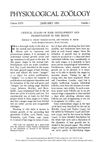Hair in Health and Disease: An Introduction
January 2012
in “
Wageningen Academic Publishers eBooks
”

TLDR Hair health depends on various factors and hair loss can significantly affect a person's well-being; understanding hair biology is key for creating effective hair care treatments.
The document from 2012 provides a comprehensive overview of hair biology, including its growth cycle, the role of stem cells, and the importance of lipids and melanin in hair health and pigmentation. It discusses the impact of nutritional factors on hair growth, the illusion of rapid greying due to hair loss, and the variations in hair properties among different ethnic groups. Hair disorders are described as having significant psychological effects on individuals, with conditions like androgenetic alopecia, alopecia areata, and telogen effluvium leading to both reversible and irreversible hair loss. The document also emphasizes the importance of understanding hair biology for the development of targeted hair care products and treatments. Ethnic differences in hair growth rates and characteristics are noted, with African hair growing at approximately 0.9 cm per month, Caucasian hair at 1.2 cm per month, and Asian hair at 1.3 cm per month. The psychological impact of hair loss is highlighted as a critical aspect of patient care, with current treatments focusing on reducing inflammation and the need for addressing the emotional distress associated with hair loss.













